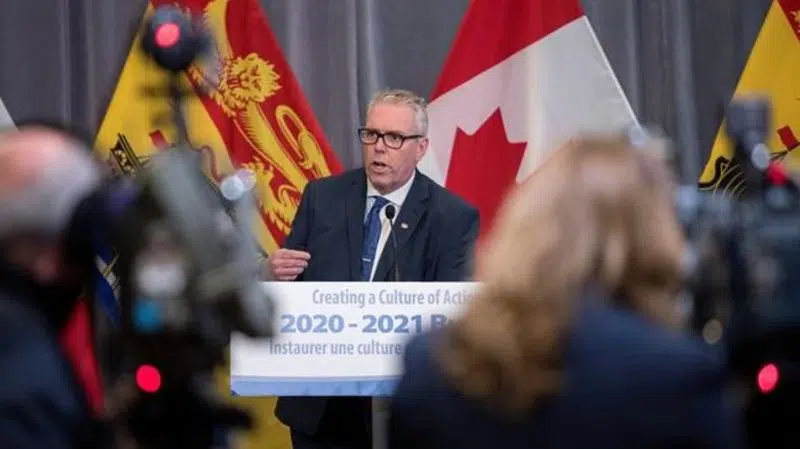
New Brunswick government tables $10.2 billion budget with a surplus
FREDERICTON — The New Brunswick government tabled a $10.2-billion budget Tuesday that projects a $129.3 million reduction in the province’s net debt.
Finance Minister Ernie Steeves presented the fiscal plan as the Opposition Liberals promised to vote against it in a bid to topple the minority Progressive Conservative government.
The leaders of the Green and People’s Alliance parties have said they want to see the budget details before deciding how they’ll vote.
The current standings in the provincial legislature are 20 Tories, 20 Liberals, three Greens, three People’s Alliance members, one Independent and two vacancies.
